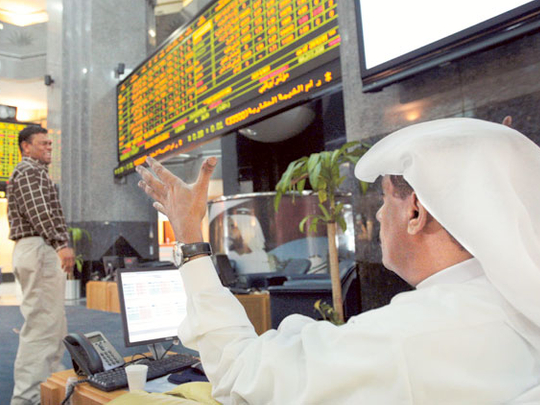
DUBAI: Index compiler Morgan Stanley Capital International Inc. (MSCI) promoted the United Arab Emirates and Qatar to emerging markets status, a move that is likely to further boost investor sentiment for the Arabian Gulf economies.
The elevation of the MSCI U.A.E. and MSCI Qatar indices from frontier to emerging markets will coincide with the May 2014 semi-annual index review, MSCI said in its yearly market classification report, posted on its website early Wednesday.
“The MSCI decision to upgrade Qatar and United Arab Emirates from frontier markets to emerging markets, with effect May 2014, reflects a growing realization of how far these economies and their financial markets have developed in recent years,” said Sam Vecht, BlackRock’s head of the emerging markets specialist team and portfolio manager of the Frontiers Investment Trust.
MSCI said international institutional investors recognized the improvements made by the U.A.E. regulator and bourses in settling trades and dealing with false trades, which were previously a concern. The U.A.E. is made up of seven emirates: Abu Dhabi, Dubai, Ajman, Fujairah, Ras al-Khaimah, Sharjah and Umm Al Quwain.
For Qatar, the index provider said it welcomed the progress made by the authorities to raise the limits on foreign ownership of companies listed on the Doha-based exchange, but added that the current foreign ownership limits were still low by emerging market standards.
“Qatari authorities should actively continue to increase them above 25% in order to mitigate potential issues arising from increasing foreign capital inflows,” MSCI said.
Inclusion in the MSCI emerging markets bracket tends to lead to big inflows from global stock market funds which track the index. But such funds will likely start to invest only after the reclassification takes effect in May next year.
Moreover, the two markets have rallied this year and several analysts reckoned that expectations of an MSCI upgrade were mostly priced in. The news is still likely to provide a near-term boost, they said. Dubai’s benchmark stocks gauge is among the top performers in the world this year, rising 45% to date, while neighbor Abu Dhabi’s gauge has added 36% and Qatar is up some 12%.
“Upgrades for these countries would likely mean an increase in average daily value traded in these markets, as well as positive price performance, but this is likely to be short-lived,” an analyst at Cairo-based investment bank EFG Hermes said in a note to clients ahead of the MSCI announcement.
MSCI also said it will reclassify Morocco as frontier market, ending its emerging markets status, as part of its November 2013 semi-annual index review. “The MSCI Morocco Index has failed the Emerging Market liquidity criteria for several years and this downward trend in liquidity has shown no sign of reversal,” it noted in the statement.
Besides downgrading Morocco, the index provider noted it’s closely monitoring the situation in Egypt-the only other emerging market in the Middle East and North Africa before the U.A.E. and Qatar’s elevation. The index said it especially is looking at problems in the foreign exchange market.
MSCI said it may launch a public consultation on a potential exclusion of Egypt from the emerging markets index if the situation to worsen in the coming months.












